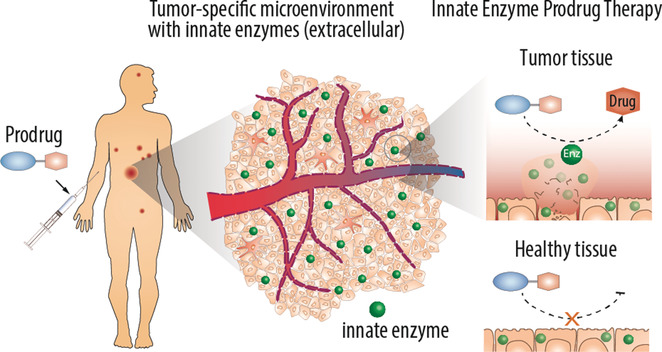Zelikin laboratories publish new findings on potential anticancer prodrug monotherapy
Associate Professor Alexander Zelikin and his research team publish in Angewandte Chemie Int. Ed. on new results which makes tumor‐targeted glucuronides attractive for translational medicine.

Abstract from Angewandte Chemie Int. Ed.:
In the published work, a tumor growth intervention by localized drug synthesis within the tumor volume, using the enzymatic repertoire of the tumor itself, is presented.
Towards the overall success, molecular, macromolecular, and supramolecular glucuronide prodrugs were designed for a highly potent toxin, monomethyl auristatin E (MMAE).
The lead candidate exhibited a fold difference in toxicity between the prodrug and the drug of 175, had an engineered mechanism to enhance the deliverable payload to tumours, and contained a highly potent toxin such that bioconversion of only a few prodrug molecules created a concentration of MMAE sufficient enough for efficient suppression of tumor growth.
Each of these points is highly significant and together afford a safe, selective anticancer measure, making tumor‐targeted glucuronides attractive for translational medicine.
The research has been carried out by scientists from Interdisciplinary Nanoscience Centre (iNANO), Department of Chemistry, and Department of Biomedicine at Aarhus University (Denmark). Associate Professor Alexander Zelikin has been in charge of the research team behind the study.
Read about the study in Angewandte Chemie Int. Ed.:
This work was supported by the European Research Council and the Independent Research Fund Denmark.
For further information, please contact
Associate Professor Alexander Zelikin
Interdisciplinary Nanoscience Center
Department of Chemistry
Aarhus University
Email: zelikin@inano.au.dk
Phone: 2329 7986